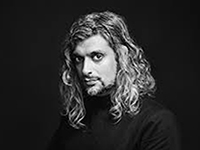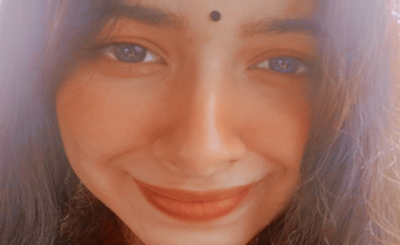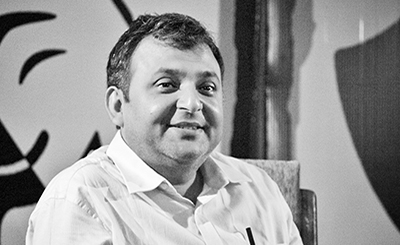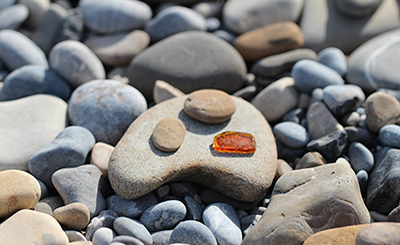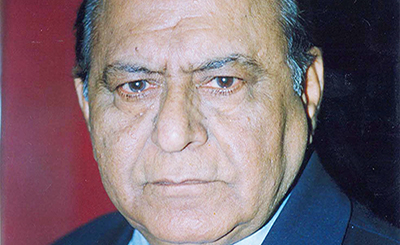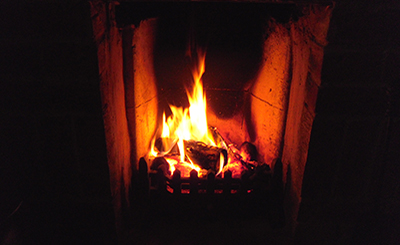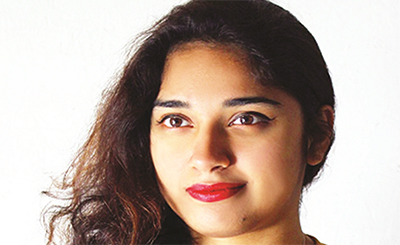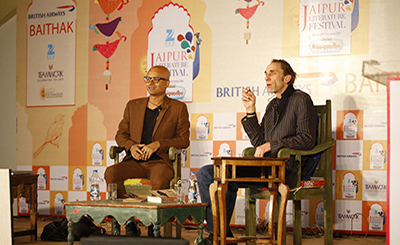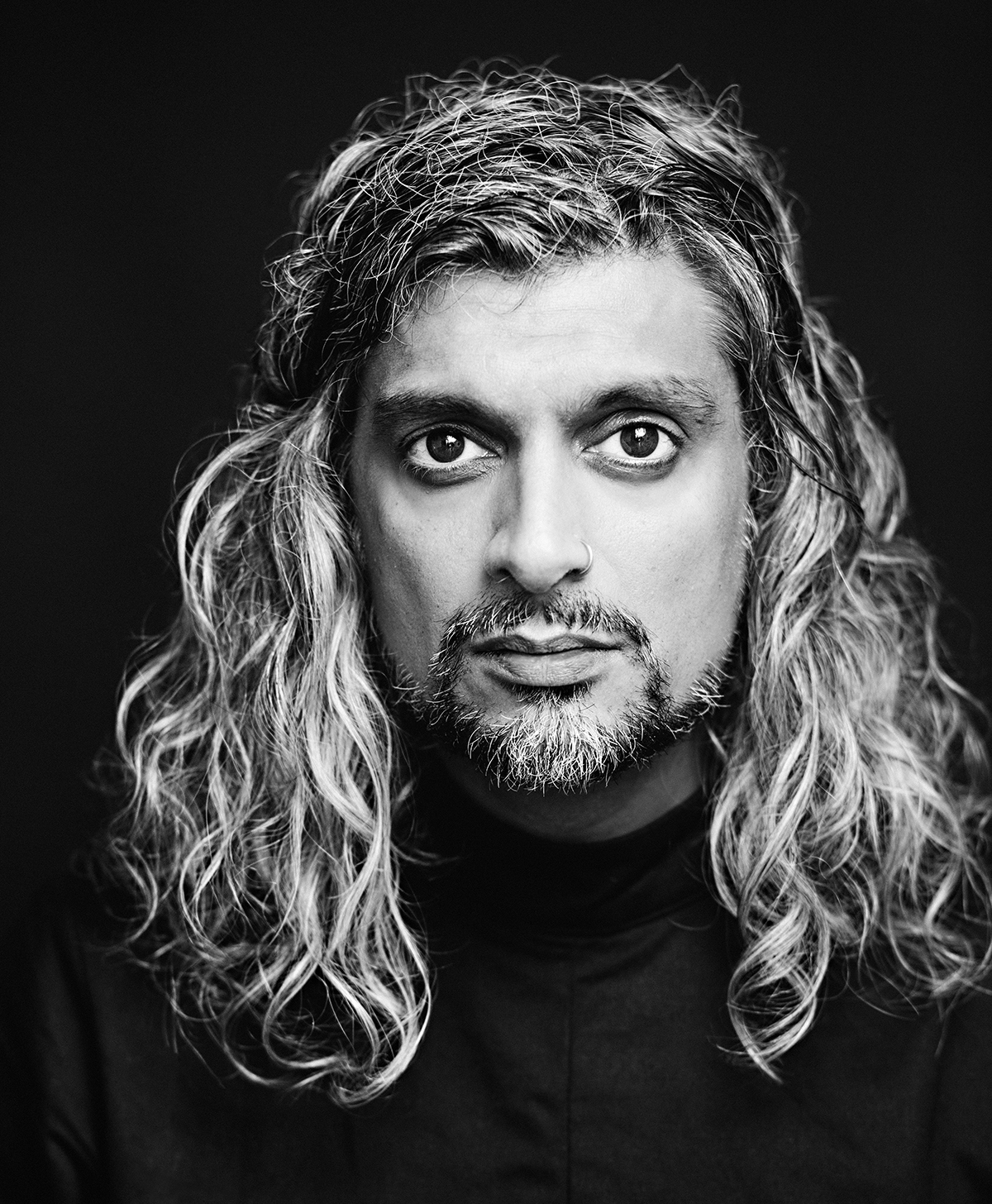
Kazim Ali. Photo courtesy of the author
I am “queer” for two reasons: because I am gay and because my body — a half-Pakistani body by law if not by blood or ancestry — lies out the mainstream of what the mother country now considers acceptable
Dear Shireen,
Hello from the other side of the world. Thank you for asking me to reflect on my experiences growing up LGBTQ in light of the anniversary of the Supreme Court decision decriminalizing same sex relationships in India. For my part, I don’t necessarily identify as “gay,” someone in a relationship with someone of the same gender, but more specifically “queer.” To me,“queer”— which had its origins as insult — means outside the mainstream, at the edges of the what is accepted. That is where I have always found myself, in love, in art, in politics, in life.
In particular, at the moment, I find myself far from the country I love, far from India. It’s not by choice. The visa rules have changed for me and it has become much harder for to come, otherwise I would be with you every winter. At one time, I had a multi-entry visa for years and I could come and go: I remember my trips to the beautiful temples in Mahabalipuram where I saw the sculpture of Hayagriva, surrounded by the double helices of DNA, and the magnificent façade of Arjuna’s Penance; my favorite part, of course, is the cat engaged in vriksasana, surrounded by the mice who are joyful the cat has become a yogi and renounced violence.
But these days I have to present myself in person at the consulate (an eight-hour journey by car from where I live in southern California) in order to return to the country of the birth of my parents and all four of my grandparents. This is because my father once held Pakistani citizenship. It is doubly ironic because the reason my father’s family migrated from Vellore to Pakistan was because of the increased sectarian tensions in the years leading up to Independence.
So, I am “queer” for two reasons — because I am gay and because my body — a half-Pakistani body by law if not by blood or ancestry — lies out the mainstream of what the mother country now considers acceptable. My family traveled across the globe. Their ancestors came from Egypt, Iran, Iraq, Baluchistan, other places too probably, to settle in coastal Andhra Pradesh in the late 18th century. From 1820 onwards, they were merchants situated in Chennai and Vellore. In the early 1940s, my mother’s family moved to the kingdom of Hyderabad and my father’s family went to Karachi. I was born in England and raised in Canada. Is a human a fixed point in time and space? Are we never meant to move? Or grow?
It is easy to say I have no homeland, no mother country, and it is true that I wonder what those things truly mean. What does it mean to belong to a place? LGBTQ people ask this question all the time because in many cases they have suffered rejection, ejection or exile from their families or spiritual communities. But one of the landscapes of my heart is still that landscape of Hyderabad, landscape of great rocks, shattered remains of the mountain range that erupted in fire some seventy million years ago. From fire to stone, from wind to water, I followed chance and my heart to the cliffs of Varkala overlooking the shining Arabian Sea and there I found myself, there I knew another sense of home.
Even the gods of the Hindu pantheon know there is more to gender and sexuality than what a body presents itself as and what human laws attempt to codify. When Vishnu was confronted with the destruction of the world at the hands of the demon Bhasmasura, he changed himself into Mohini and only in her form was she then able to defeat him, not with violence but with art and love. The Muslims of Kerala revere Ayappan, said to be born of Shiva and Vishnu, for his friendship with Muslim saints and holy men. The gods of Yoga, Shiva and Parvati combined their essences to birth Ardhanarishvara, a god with two genders, because only in that reality could the god realize the truths of non-dualism.
These stories have deep meaning in the contemporary world if we thought more about them. I am often asked how I, as a Muslim, chose to study yoga and Vedanta so deeply. The only thing I can think of is that yoga has always been transnational and cosmopolitan: though its origins were with the ancient sages of the subcontinent, its flowering came in 14th century Kashmir, when the Shaivite sages were engaged in deep commerce with the Persian and Arab world. Ideas from Islam and Vedanta cross-pollinated. Dara Shikoh, son of Shah Jahan, had the ancient yogic texts translated into Persian and Arabic and distributed across the Muslim world. Did the poses of the surya namaskar come from the poses of the salaat or was it the other way around? Does it matter? Did the devotional kirtan transform into qawwali or did qawwali give shape to the musical elements of Vedic chanting? What matters is that these spiritual practices and these peoples have been bound together and have been feeding one another for countless generations.
Needless to say, everything that has happened in Kashmir in the last half of the twentieth century until now is a tragic repudiation of that rich and deep commingling of traditions that gave us modern Indian culture and spirituality.
You asked me to write about my experiences as an LGBTQ Indian. But I am an Indian in exile. And the relationship between the current nationalist discourses and the discourses of homophobia that spurred the criminalization of same-sex relationships are drawn from the same stream of ignorance and separation. I am removed from my sources, as a yogi, a queer person, a Muslim, a desi.
I long to come home, to come home and be welcomed, to be welcomed and held, to be held and known.
From a great distance, I send you love.
Kazim
More from The Byword
Comments
*Comments will be moderated
Bless you and yours.Continue to celebrate your life, your very existence wherever you are on this planet.
Kay Dellabella
Nov 19, 2019 at 02:16



